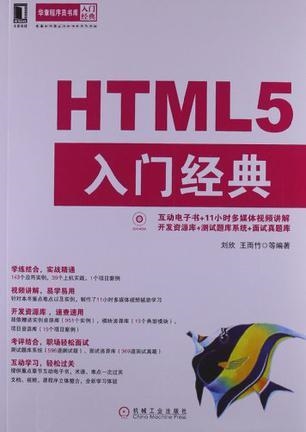我正在编写C语言的作业,上传系统告诉我我使用了太多的堆栈内存。 我需要找到问题的根源,因为我有点卡住了。
有什么办法可以分析堆栈内存的使用情况,甚至可以看到哪些变量使用它们以及它们使用了多少?
编辑:这是代码。 它不完整(因为这是案例2,当使用参数启动文件时;案例1工作正常),所以我希望我没有留下任何我没有使用的函数等。
这意味着什么是凯撒密码与它的一点点转折。 在输入时,我得到两个未知大小的字符串。 第一个是密码,第二个是应该接近解码的消息(它可能缺少字母,它可能有多余的字母)。 代码工作正常,并输出所有应有的东西,但如果我输入更长的字符串(每个200个字符),上传系统开始说我使用了太多的堆栈。
fe与输入(截图在这里https://imgur.com/a/gxWlZ )
NOPQRSTUVWXYZabcdefghijklmnopqrstuvwxyzABCDEFGHIJKLMNOPQRSTUVWXYZabcdefghijklmnopqrstuvwxyzABCDEFGHIJKLMNOPQRSTUVWXYZabcdefghijklmnopqrstuvwxyzABCDEFGHIJKLMNOPQRSTUVWXYZabcdefghijklmnopqrstuvwxyzABCDEFGHIJKLM abcRkfgchijklmnbCGqrstuvpxyzeABQDEFQGvIJKLMNOPRTUVWPZabcdefghijklnopdrPstuvwxorkCzABCEqFDpGHdJMNOPQcRSTUNVGYuZbMcTefghjklmnopqrstcvgwyzABCOiGHIPJKLMNOYPQRsTUWvYYZaQcdZpfgCfiXjekmnopqrptuvtwxyiABCDQFGHUEIJKLMQOPQRSTfVWXYZ我显然使用了堆栈内存的185232B。
#include <stdio.h> #include <stdlib.h> #include <string.h> #include <ctype.h> const char* alphabet = "ABCDEFGHIJKLMNOPQRSTUVWXYZabcdefghijklmnopqrstuvwxyz"; char rotate(char, int); void shift(const char *src, char * dst, int offset); char * inputstr(size_t size); int edit_distance(const char *str1, const char *str2, int len1, int len2); int main(int argc, char * argv[]) { char * source = inputstr(10); char * example = inputstr(10); size_t len_source = strlen(source); size_t len_example = strlen(example); //char *closest = calloc(len_source+1,sizeof(char)); char * destination = calloc(len_source + 1, sizeof(char)); int min_match = len_source; int best_i = 0; for (int i = 0; i < 52;++i) { shift(source, destination, i); int match = edit_distance(destination, example, len_source, len_example); //printf("%2d: %s ~ %s > %d\n",i, destination, example, match); if (match < min_match) { min_match = match; best_i = i; } } shift(source, destination, best_i); printf("%s\n", destination); free(source); free(example); //free(closest); free(destination); return 0; } char rotate(char original, int offset) { int index; char * rest; rest = strchr(alphabet, original); index = (int)(rest - alphabet); int distance = (index + offset) % 52; char new = *(alphabet + distance); return new; } void shift(const char *src, char * dst, int offset) { int counter = 0; int len = strlen(src); for (int i = 0; i < len; ++i) { dst[i] = rotate(src[i], offset); counter++; } } char * inputstr(size_t size) { char * str; if ((str = realloc(NULL, size * sizeof(char))) == NULL) { printf("Not enough memory\n"); free(str); exit(69); } int ch; size_t len = 0; while ((ch = getchar()) != EOF && ch != '\n') { if (isalpha(ch)) { str[len] = ch; ++len; if (len == size) { size *= 5; if ((str = realloc(str, size * sizeof(char))) == NULL) { printf("Not enough memory\n"); free(str); exit(69); } } } else { fprintf(stderr, "Error: Chybny vstup!\n"); free(str); exit(100); } } str[len++] = '\0'; return str; } int edit_distance(const char *str1, const char *str2, int len1, int len2) { int d[len1 + 1][len2 + 1]; for (int i = 0; i <= len1; ++i) { d[i][0] = i; } for (int j = 0; j <= len2; ++j) { d[0][j] = j; } for (int j = 1; j <= len2; ++j) { for (int i = 1; i <= len1; ++i) { if (str1[i - 1] == str2[j - 1]) { d[i][j] = d[i - 1][j - 1]; } else { int min = d[i - 1][j] + 1; if ((d[i][j - 1] + 1) < min) { min = d[i][j - 1] + 1; } if ((d[i - 1][j - 1] + 1) < min) { min = d[i - 1][j - 1] + 1; } d[i][j] = min; } } } //printf("%d %d\n", len1, len2); /*for(int i = 0; i<=len1; ++i) { for(int j = 0; j<=len2; ++j) { printf("%2d ", d[i][j]); } printf("\n"); }*/ return d[len1][len2]; }I'm coding homework in C and the upload system tells me I'm using too much stack memory. I need to find the root of the problem as I'm kinda stuck.
Is there any way I could analyze the stack memory usage or even see what variables use it and how much they use?
EDIT: Here's the code. It's not complete (because this is case 2 when the file is launched with a parameter; case 1 is working fine), so I hope I didn't leave any functions I'm not using etc.
What this is meant to do is The Caesar cipher with a bit of a twist to it. On input I get two strings of unknown size. The first one is cipher, the second one is a supposed to be close to the decoded message (it could be missing letters, it may have extra letters). The code works fine and outputs everything like it should, but if I input longer strings (like 200 chars each), the upload system starts saying I'm using too much stack.
f.e. with input (screenshot here https://imgur.com/a/gxWlZ )
NOPQRSTUVWXYZabcdefghijklmnopqrstuvwxyzABCDEFGHIJKLMNOPQRSTUVWXYZabcdefghijklmnopqrstuvwxyzABCDEFGHIJKLMNOPQRSTUVWXYZabcdefghijklmnopqrstuvwxyzABCDEFGHIJKLMNOPQRSTUVWXYZabcdefghijklmnopqrstuvwxyzABCDEFGHIJKLM abcRkfgchijklmnbCGqrstuvpxyzeABQDEFQGvIJKLMNOPRTUVWPZabcdefghijklnopdrPstuvwxorkCzABCEqFDpGHdJMNOPQcRSTUNVGYuZbMcTefghjklmnopqrstcvgwyzABCOiGHIPJKLMNOYPQRsTUWvYYZaQcdZpfgCfiXjekmnopqrptuvtwxyiABCDQFGHUEIJKLMQOPQRSTfVWXYZI apparently used 185232B of stack memory.
#include <stdio.h> #include <stdlib.h> #include <string.h> #include <ctype.h> const char* alphabet = "ABCDEFGHIJKLMNOPQRSTUVWXYZabcdefghijklmnopqrstuvwxyz"; char rotate(char, int); void shift(const char *src, char * dst, int offset); char * inputstr(size_t size); int edit_distance(const char *str1, const char *str2, int len1, int len2); int main(int argc, char * argv[]) { char * source = inputstr(10); char * example = inputstr(10); size_t len_source = strlen(source); size_t len_example = strlen(example); //char *closest = calloc(len_source+1,sizeof(char)); char * destination = calloc(len_source + 1, sizeof(char)); int min_match = len_source; int best_i = 0; for (int i = 0; i < 52;++i) { shift(source, destination, i); int match = edit_distance(destination, example, len_source, len_example); //printf("%2d: %s ~ %s > %d\n",i, destination, example, match); if (match < min_match) { min_match = match; best_i = i; } } shift(source, destination, best_i); printf("%s\n", destination); free(source); free(example); //free(closest); free(destination); return 0; } char rotate(char original, int offset) { int index; char * rest; rest = strchr(alphabet, original); index = (int)(rest - alphabet); int distance = (index + offset) % 52; char new = *(alphabet + distance); return new; } void shift(const char *src, char * dst, int offset) { int counter = 0; int len = strlen(src); for (int i = 0; i < len; ++i) { dst[i] = rotate(src[i], offset); counter++; } } char * inputstr(size_t size) { char * str; if ((str = realloc(NULL, size * sizeof(char))) == NULL) { printf("Not enough memory\n"); free(str); exit(69); } int ch; size_t len = 0; while ((ch = getchar()) != EOF && ch != '\n') { if (isalpha(ch)) { str[len] = ch; ++len; if (len == size) { size *= 5; if ((str = realloc(str, size * sizeof(char))) == NULL) { printf("Not enough memory\n"); free(str); exit(69); } } } else { fprintf(stderr, "Error: Chybny vstup!\n"); free(str); exit(100); } } str[len++] = '\0'; return str; } int edit_distance(const char *str1, const char *str2, int len1, int len2) { int d[len1 + 1][len2 + 1]; for (int i = 0; i <= len1; ++i) { d[i][0] = i; } for (int j = 0; j <= len2; ++j) { d[0][j] = j; } for (int j = 1; j <= len2; ++j) { for (int i = 1; i <= len1; ++i) { if (str1[i - 1] == str2[j - 1]) { d[i][j] = d[i - 1][j - 1]; } else { int min = d[i - 1][j] + 1; if ((d[i][j - 1] + 1) < min) { min = d[i][j - 1] + 1; } if ((d[i - 1][j - 1] + 1) < min) { min = d[i - 1][j - 1] + 1; } d[i][j] = min; } } } //printf("%d %d\n", len1, len2); /*for(int i = 0; i<=len1; ++i) { for(int j = 0; j<=len2; ++j) { printf("%2d ", d[i][j]); } printf("\n"); }*/ return d[len1][len2]; }最满意答案
罪魁祸首在edit_distance看起来像这个数组:
int d[len1 + 1][len2 + 1];此数组的大小(len_source + 1) * (len_example + 1) * sizeof(int) 。 因此,例如,如果源和示例字符串每个都是200字节,并且int是4个字节,那么对于此数组,大约有200 * 200 * 4 = 160000个字节。 这些不是巨大的字符串,但已经超过你的堆栈限制的3倍。
您可以动态地分配一个2D数组(技术上是一个指针数组,每个数组都指向一个int数组),而不是在堆栈上声明这个数组:
int i; int **d = malloc(sizeof(int *) * (len1 + 1)); for (i=0; i < len1 + 1; i++) { d[i] = malloc(sizeof(int) * (len2 + 1)); }然后确保你保存你想要返回的价值并释放一切:
int result = d[len1][len2]; for (i=0; i < len1 + 1; i++) { free(d[i]); } free(d); return result;The culprit looks like this array in edit_distance:
int d[len1 + 1][len2 + 1];This array has size (len_source + 1) * (len_example + 1) * sizeof(int). So if for example the source and example string are each 200 bytes and an int is 4 bytes you have roughly 200 * 200 * 4 = 160000 bytes for this array. Those aren't huge strings but that's already more than 3 times your stack limit.
Instead of declaring this array on the stack, you can allocate a 2D array (technically an array of pointers, each of which points to an array of ints) dynamically:
int i; int **d = malloc(sizeof(int *) * (len1 + 1)); for (i=0; i < len1 + 1; i++) { d[i] = malloc(sizeof(int) * (len2 + 1)); }Then make sure you save off the value you want to return and free everything:
int result = d[len1][len2]; for (i=0; i < len1 + 1; i++) { free(d[i]); } free(d); return result;更多推荐








发布评论